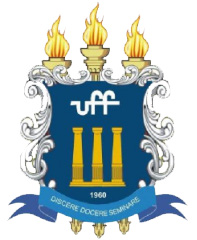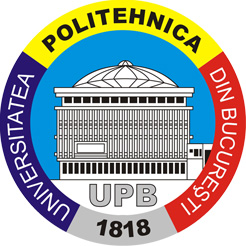Learning Mobility of Individuals
Higher education student and staff mobility between Programme and Partner Countries
About the project:
The phases of the mobility project consist of:
Bilateral travels between Romania and Brazil;
Learning and teaching activities;
Development of researches and systems in collaboration;
Development of specific methodologies to improve skills and
Elaboration of courses, articles and other publication jointly.
All participating of the program must be regular member of the organizations, that is both sending and receiving must be from a HEIs and awarded with an ECHE. The Partner Country organizations and their members must from the HEIs, with recognized competent, they have signed inter-institutional agreements with their Programmed Country partners before the beginning of the mobility period.
Concerning the recognition of the work resulting from the mobility period it is designed to have the same evaluation on both of the partners, except when the duration in hours do not present correspondence. In such a case the hours of the courses will be used to computer the proportional credits to be achieved by the student. Moreover, a team of 2 professors from Brazil - UFF and 2 professors from Polytechnic University of Bucharest will be in charged with the solution of no previously identify aspects. The information on curricula of the courses (and its credit points) and schedule will be available on the universities website. The Erasmus Office of Polytechnic University will be in charge with preparation of documents for registration. The activity of the students will be monitoring by a team of 3 professors designed by the project coordinator from each university.
The teaching activities could be related to the competence of each staff (i.e. design of products and planning and development of computer systems and tools. The courses will be in English could be held at Niteroi/Brazil (UFF), for our graduate students or in POLITEHNICA University of Bucharest at faculty of Engineering in Foreign Languages (English, French and German) as well as by the Faculty of Engineering and Management of Technical Systems (in English). Alternative graduated students can participate in development of the subject of their Ph.D. Thesis in the partner country. The thematic breadth of the proposal is strong and covers highly topical fields as well as key fundamental science and technology areas, broadly in the Information Technology, Electronics, Computing and Communication sectors and more particularly the emerging disciplines of Environmental, Informatic for Health , Biotechnology, Bio-composites, Bio computing, and Network security. In summary the activities of this proposal are concerned to the collaboration of both countries to increase the quality of the formation of students, developed of research, and promotion of possibilities for startups companies. This project associates professors and researches (i.e. M.Sc and PhD students). It considers the union and fusion of the competence between the institutions and members.
As a great challenge and potential risk of the project we have to take into consideration the big cultural differences among the economic levels of the population in Brazil that would appear for the EU partners. We consider that preparing an explanation material to show these dissimilarities for the visiting personnel, in order to inform about the way of mitigating this probably cultural shock, before their arrival will be a good solution.
The UFF Brazilian Graduate Program in Computing is a consolidated graduate program, acting in many sub-areas of Computer Science. It is qualified with the level 6 of CAPES, and it is among the best graduate programs in Brazil. It has about 40 professors. UFF faculty possesses an excellent level of scientific production - 24 professors have research productivity scholarships from CNPq. The Program has a multi-disciplinary profile, offering formation on the Master and Doctorate levels in computer science and related areas with a number of possible applications in all aspects of Engineering, Economy, Environment Science, Physic and Mathematic. Its objective is the search for academic excellence in such areas, providing the graduation of highly qualified human resources, with strong scientific and technological background. We offer both Master and Doctorate degrees. One of the main important rules for selection of participants, among the different levels of students will be considered not only their academic grades but the potential of the dissemination of the acquired experience and knowledge.
Both university involved will organize a selection so that the participants to show their work capacity, their commitment and their involvement in dissemination activity ( i.e. preparing a web site of the project, graphical dissemination materials, etc.). Through all its activities the project have to demonstrate that in Brazil and in Romania the university has the mission of being a bridge between Society and Government in order to improve the life quality in very far and remote parts of the country. So, this proposal has been designed to reflect an equality of opportunity and the selection of participants is on the basis of neutrality in issues of race, gender, sexuality and disability.
The project has strong impact at national and European level, as well as at international level. On national level is related to the fact that the Brazilian participants (now in the level of Ph.D. students) are professors in federal universities in the far places of the interior of Brazil and their activities in such other universities are very important on dissemination of the social associations for improvement of life quality, educational level and culture.
The project partners will benefit from establishment of working relations in both institutional and individual level. The involved experts will be able to acquire new perspectives and share practical experience. Contacts with stakeholders while disseminating the project will widen contact networks. The newly acquired competencies and contacts will be carried on long after end of the project. The partners believe that the project will have a world-wide impact and are planning communication and dissemination activities to reach international audience.
The project will have a positive impact on the persons directly or indirectly involved in the activities, such as: increasing the sense of initiative and entrepreneurship; improve the competence in foreign languages; increased level of computational competence; enlarge the understanding and responsiveness for the social, linguistic and cultural diversity; enlarge the levels of skills for employability and efficiency for new business and ideas of products, computer systems and tools.
Promising and capable students from refugees, displaced, socially disadvantageous groups, and tribal native peoples would be encouraged. The aim will be to foster the participation of minority groups (as defined in each participating country) in the program and especially to support the full involvement of women in the program. Indeed in this group of partners, the female senior figures present excellent models. There will be students that will participate from Brazil belonging to native Indians groups and some of them are descendants from African slaves. As the government has some agreements with African countries, we already have some African students in our course. In Brazil a lot of the minority and unattended people live in the suburban and country side area. The practical experience shows that these people prefer to apply to UFF, despite other Federal Universities. Furthermore UFF has a tradition to offer local courses in partnership with City Halls, offering courses where still does not exist university courses of quality. This reason probably leads to an increase of unattended students when comparing to other Universities. The proposal is not designed to encourage a brain drain to the EU countries, the aim is to provide training that will allow the participants from Brazil to work as equal partners with the EU groups and to allow those trained to play a full part in developing minority groups in both countries as well as improve they role as leading member of the society. Thus the proposal is well balanced and concerned about the importance of the received support and the recognition that the mobility period in terms of these criteria.
On international level the impact of the mobility project is related to the positive aspect that the exchange of the experiences and skills in the area of engineering and computer science among the partners and participants of the pilot training group will promote by the dissemination of their activities. For the European impact, it is possible to mention the following aspects:(1) Encouragement of the cooperation between EU and Non EU countries, universities, and decision makers;(2) Promotion of contacts among the participant in a personal and professional level;(3) Wide dissemination of the developed activities, by using the best practices of the areas addressed by the project.
The involved professors/experts will be able to acquire new perspectives and share practical experience with professors from Brazil and the Brazilian people will be able to do the same with the partner from Romania.
Measures of the dissemination success of the results of the mobility project at faculty and institution levels can be described by: (1) new opportunities of collaboration in publication of articles in journals and conferences, (2) number of participants in summer school where the staff teach in the partner institutions, (3) elaborations of new collaboration project considering the agency of each country, like the Brazilian agencies CNPq and CAPES, and (4) future opportunities in co-advising students in graduation level.




